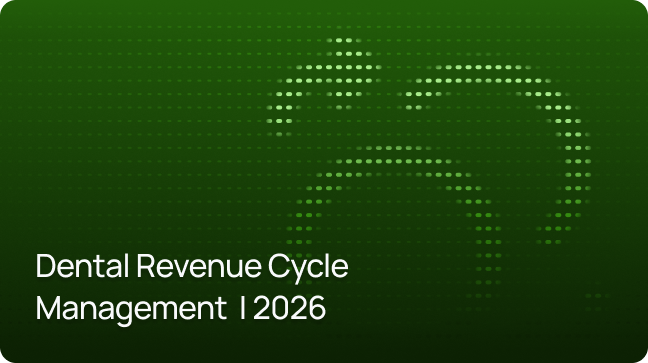The year 2025 has seen Agentic AI emerge as one of the hottest tech trends in business. From Fortune 500 enterprises to agile startups, companies are experimenting with AI agents that don't just chat or predict – they .
Unlike earlier AI systems that waited for commands, these autonomous agents take initiative, make decisions, and execute tasks in complex real-world workflows. The excitement is reflected in the market numbers: the global agentic AI market is projected to grow from $28 billion in 2024 to $127 billion by 2029 (35% CAGR). Gartner even predicts that by 2029, agentic AI will autonomously resolve 80% of common customer service issues, cutting operational costs by 30%. In other words, Agentic AI has moved from a futuristic concept to a business reality, promising game-changing boosts in productivity and customer experience.
So, what exactly makes an AI system ? Think of the difference between an AI content generator and a proactive digital employee. Traditional (like ChatGPT) is a brilliant content creator – it responds to prompts with essays, code, or designs. Agentic AI, by contrast, is about action and autonomy. It combines advanced AI reasoning with memory, tool usage, and goal-driven planning to not only generate answers but take independent initiative.
As one definition puts it, . In practical terms, an agentic AI might receive a high-level goal ("handle all incoming customer refund requests" or "optimize our AWS cloud costs this week") and then figure out the steps, gather data, and execute tasks across multiple systems to achieve that goal.
This marks a significant leap from earlier automation, as the agentic AI now finds its way forward independently.
Real-World Agentic AI Case Studies
The real proof of agentic AI's value is in the use cases. Below, we explore the hottest agentic AI examples of 2025 across industries, showing how autonomous AI agents are transforming work for CTOs and business executives alike.
1. Healthcare RCM Automation with Agentic AI Agents

Provider Organization
, a non-profit health & disability services provider
Challenge
High accounts receivable (A/R) days and frequent claim denials, with billing teams spending excessive time on repetitive eligibility checks, coding, claims submission, and appeals. Manual workflow inefficiencies were causing delayed collections and distracting staff from strategic improvements.
Agentic AI Implementation
Thoughtful AI deployed specialized autonomous AI agents—Eva, Paula, Cody, Cam, Dan, and Phil—across RCM processes for Easterseals:
- Eligibility verification automated by Eva
- Prior authorization handled by Paula
- Documentation coding by Cody
- Claims submission via Cam
- Denials and appeals managed by Dan
- Payment posting done by Phil
These agents work end-to-end, coordinating across EHR systems and payer portals, learning from prior denials and adapting workflows over time.
Outcome
- 35-day reduction in average A/R days
- 7% reduction in primary denials
- ABA (applied behavioral analysis) claim denials under 2%
- Staff able to focus on process improvement rather than manual transactions—"time to focus on high-level RCM improvements" (testimony of Director of Performance Improvement)
2. Specialty Medication Prior‑Authorization Automation
Provider Organization
, a U.S. provider network specializing in administering infused specialty medications for chronic conditions like multiple sclerosis, oncology, and autoimmune disorders.
Challenge
Obtaining insurance approval for high-cost specialty drugs historically took up to 30 days, often delaying patient treatment and causing denials. The manual process involved staff contacting payers, faxing documents, and chasing re-submissions—resulting in errors, lost revenue, and delayed care.
A San Francisco–based startup deployed its agentic AI agents to automate specialty medication prior-authorization:
- The agent autonomously initiates insurance verification and prior auth submissions
- It contacts payer systems to confirm coverage requirements
- Escalates incomplete or complex cases to human staff
- Learns from outcomes to improve success rates
- Provides real-time case tracking dashboards for administrators
Results
OI Infusion Services cut approval times from around 30 days down to just three days, drastically reducing treatment delays and denials. AI agents reduced administrative overhead significantly, enabling staff to focus on exceptions and patient care rather than paperwork.
3. ERP Modernization Through Autonomous Agents

Client
A leading global consumer goods company (name confidential, delivered via Deloitte + UiPath)
Challenge
The company embarked on a major ERP modernization initiative, involving a large-scale transition from legacy systems to a cloud-based SAP S/4HANA platform. The project spanned multiple regions and business units, with complex interdependencies across finance, supply chain, procurement, and compliance. Manual testing, change impact analysis, and regression validations created delays and bottlenecks—jeopardizing go-live deadlines and inflating transformation costs.
Agentic AI Solution
Deloitte and UiPath partnered to deploy a network of autonomous software agents leveraging UiPath's Test Suite and automation platform. These agents were configured to:
- Continuously monitor SAP change logs and business processes
- Autonomously identify impacted business scenarios and test cases
- Prioritize risk-based testing based on criticality and business value
- Trigger test automation, validate results, and escalate anomalies—without manual oversight
- Adapt testing strategies based on results and historical failures, optimizing coverage across regions and departments
The result was an agentic automation framework that dynamically planned and executed testing workflows across thousands of scenarios, reducing dependency on static test plans or overworked QA teams.
Results
- Reduced manual test execution efforts by 60%
- Accelerated defect identification across ERP modules
- Minimized business disruption during phased ERP rollouts
- Enabled faster regression cycles and reduced the risk of system downtime
- Ensured global consistency in testing across multiple operating regions
Gave leadership confidence in go-live timelines and quality assurance
4. Telecommunications Support Assistants at Scale
Client
Telstra – Australia's largest telecom operator)
Challenge
Contact center agents struggled with disjointed data across systems, requiring time-consuming lookup of customer histories and product info; new agents were particularly challenged by learning the knowledge base.
Agentic AI Solution
Two AI agents were deployed:
- One Sentence Summary: Generated concise summaries of a customer's history and context from recent interactions and transactions automatically on call.
- Ask Telstra: Real-time AI assistant that retrieves answers from internal knowledge bases and presents them on demand as agents engage with customers.
Results
- 90% of users reported increased agent effectiveness;
- follow-up call volume dropped by 20%;
- agents resolved issues faster and more confidently, speeding up onboarding and improving CSAT.
5. Legal Research & Drafting Assistant
Client
Allen & Overy, aninternational law firm
Challenge
Allen & Overy faced mounting pressure to improve efficiency while maintaining high standards across increasingly complex legal workflows. Junior and mid-level associates were spending thousands of hours on:
- Drafting legal clauses and contracts
- Conducting multi-jurisdictional legal research
- Summarizing and comparing case law and precedents
- Reviewing NDAs, compliance forms, and transactional documents
- Manually sifting through large document sets for M&A and litigation prep
These tasks were repetitive, cognitively intensive, and prone to inconsistency across international teams.
Agentic AI Solution
Harvey (a legal copilot agent) was integrated firm-wide, autonomously handling:
- Contract drafting (e.g., NDAs, IP clauses) based on jurisdiction and internal precedent
- Clause suggestions and revisions tailored to client's position and risk
- Legal research & case law summarization with citations
- Comparative legal analysis for cross-border transactions
- Due diligence reviews, scanning large contract sets for red flags
- Compliance documentation automation
Harvey doesn't just respond—it plans and executes tasks based on prompts like "Draft a UAE-compliant shareholder agreement." It uses memory, feedback loops, and firm-specific data to adapt output, significantly reducing manual effort.
Results
- Averaging ~40,000 requests per day across global teams
- Cut down research and drafting time by up to 60%
- Improved consistency across international contract teams
- Freed up associates to focus on high-stakes advisory work, boosting client value
- Enhanced scalability without linear headcount increases
6. Retail Inventory Forecasting & Restocking Automation
Client
Walmart – the largest U.S. retailer with over 4,700 physical stores and a massive e-commerce operation
Challenge
Walmart struggled with inventory misalignment across its sprawling store and warehouse network. Traditional forecasting systems were reactive and siloed, resulting in:
- Frequent stockouts of high-demand products
- Overstocking in underperforming locations
- Missed e-commerce delivery windows
- Excessive markdowns due to outdated replenishment logic
With its strategic goal of driving 50% of sales through e-commerce by 2026, Walmart needed a smarter, more autonomous inventory engine to optimize stock placement in real time.
Agentic AI Solution
In 2025, Walmart began scaling its internal "AI Super Agent"—an advanced agentic AI system that:
- Ingests real-time POS data, supply chain inputs, web traffic, weather, and local trends
- Autonomously forecasts demand per SKU per store or fulfillment center
- Initiates just-in-time restocking or inter-location inventory transfers
- Learns over time which product/store combinations under- or overperform
- Collaborates across departments (buying, logistics, and e-comm) via dynamic recommendations
Unlike traditional ML models that require analysts to interpret results, this AI agent executes entire workflows without manual triggers: detecting signals, generating forecasts, and initiating inventory actions.
Results
- 22% increase in e-commerce sales in pilot regions by improving the availability of top-searched products
- Significant reduction in out-of-stock incidents, especially for online orders
- Lower operational costs by reducing unnecessary warehousing and overstock
- Improved agility: stores could respond faster to regional demand surges (e.g., weather-related spikes or viral products)
7. Cybersecurity Autonomous Threat Hunting & Response
Client
State of Oklahoma (across multiple state agencies managed by the Office of Management and Enterprise Services)
Challenge
The State of Oklahoma faced an overwhelming flood of security alerts across its vast network infrastructure. With limited SOC staffing, the team struggled to triage thousands of incoming alerts daily—leading to alert fatigue, slow mean time to response, and increased risk of undetected malicious activity.
Agentic AI Solution
Darktrace deployed its agentic AI system, Cyber AI Analyst™, which acts as a virtual security analyst operating autonomously. Key capabilities include:
- Detection Triage: autonomously analyzes incoming alerts, determining which are real threats vs. noise
- Incident Investigation: replicates human investigative reasoning—forms hypotheses, correlates anomalous events across cloud, email, identity, network, and OT systems
- Agentic Workflows / Response: optionally enacts automated response actions within predefined security playbooks (e.g. network isolation, process termination), via its Agentic Response and Agentic Workflows capabilities built into the Cyber AI stack
Results
- From 3,142 alerts, Cyber AI Analyst condensed to 162 actionable incidents, and identified just 18 critical incidents
- This translated into ~2,561 analyst-hours saved, effectively equivalent to adding 30 full-time SOC analysts
- False positives reduced by approximately 90%, significantly lowering triage overhead
- Autonomous response actions empowered off-hours protection with trust and control, allowing lean teams to "clear the table" on threats daily
8. Autonomous AIOps for Cloud Operations

Client
Large U.S.-based manufacturing company (confidential client of IBM)
Challenge
The client operated a complex multi-cloud infrastructure supporting production systems. Their IT/DevOps teams suffered from:
- Alert overload: thousands of noisy alerts daily, many false positives
- Slow incident resolution: high Mean Time to Resolution (MTTR) due to manual triage
- System instability: costly downtime and customer-impacting issues
Agentic AI Solution
IBM deployed its Cloud Pak for Watson AIOps powered by goal-oriented agents—specifically, the Autonomous Threat Operations Machine (ATOM) framework and integrated incident response agents. These agents autonomously:
- Ingest telemetry from logs, alerts, and performance metrics across cloud and on-prem environments
- Triaging and correlating alerts, consolidating them into actionable incidents
- Diagnose root causes using historic incident patterns and dependency mapping
- Execute self-healing steps, such as: auto-restarting failed services or replicas; triggering rollbacks of faulty deployments; allocating additional resources during load spikes
- Provide incident summaries, suggestions, and post-mortem drafts to human engineers for review
These agents continuously adapt their behavior based on outcomes and evolving system patterns—freeing operations staff from routine firefighting.
Results
- 40% reduction in MTTR, enabling faster recovery from system issues
- 50% decrease in alert volume, thanks to noise suppression and incident grouping
- 30% reduction in downtime, improving system stability and production uptime
- Significant reduction in manual toil—DevOps teams shifted from reactive responders to strategic managers
- Operational cost savings and greater confidence in continuous delivery pipelines
9. Insurance Claims & CRM Automation
Client
Zurich Insurance Group, a global insurer serving over 55 million policyholders
Challenge
Support agents were experiencing slow and inconsistent customer service due to siloed systems, lengthy paperwork, and difficulties in quickly accessing customer policy and claim data. Improving agent effectiveness and reducing service times were top priorities.
Agentic AI Solution
Zurich's internal tech subsidiary ZCAM built a next-gen CRM platform powered by embedded agentic AI. This platform:
- Automatically aggregates policyholder data and claim history into a unified customer summary
- Uses AI agents to proactively suggest product recommendations tailored to the customer's profile
- Enables service agents to complete tasks following a "three‑click rule" for speed and consistency
- Remotely surfaces scripting and response suggestions in real time
Results
- Reduced service completion times by over 70%
- Increased agent productivity and reduced dropped calls
- Enhanced customer experience and satisfaction with more personalized advice
- Empowered agents to serve as consultative advisors rather than data look‑ups
10. Corporate Expense & Finance Automation
Client
Ramp, NY-based fintech and corporate finance platform used by over 40,000 businesses, including Quora.
Challenge
Corporate finance teams were overwhelmed by manual expense audits, policy compliance reviews, and delays in invoice processing. Inefficiency in handling repetitive finance tasks strained productivity.
Agentic AI Solution
In July 2025, Ramp launched its AI finance agent, integrated within their spend management and corporate card platform. The agentic AI:
- Reads company policy documents and audits expenses autonomously, flagging violations automatically
- Generates reimbursement approvals and sends notifications without manual review
- Coordinates with procurement systems to preemptively verify vendor compliance
- Learns from each decision, refining checks over time to reduce false alarms
Results
- Thousands of businesses adopted the agents within weeks
- Significant reduction in manual audit hours for finance teams
- Improved compliance scoring and faster reimbursements
- Ramp raised a $500M funding round in part due to rapid agent adoption and evidence of productivity gains
Conclusion: The Road Ahead for Agentic AI in Business
From automating healthcare revenue cycles and legal drafting, to managing inventory for global retailers and mitigating cybersecurity threats, agentic AI is no longer confined to labs or pilots. As these real-world case studies show, AI agents are already delivering measurable impact across industries, executing complex workflows with autonomy, precision, and adaptability.
The takeaway? Agentic AI is industry-agnostic and process-rich. Whether you're in banking, insurance, logistics, public service, or enterprise IT, there are high-value, repeatable tasks waiting to be handed off to intelligent agents. These systems don't just save time; they enhance human focus, improve decision-making, and unlock strategic capacity.
At Flobotics, we help businesses like yours turn agentic AI into a real operational advantage. From healthcare to finance to B2B automation, our team delivers tailored, production-ready AI agent solutions that go beyond simple chatbots or scripts.
Ready to explore what Agentic AI could do for your workflows?
At Flobotics we specialize in agentic AI automation – no generic bots here.
Ready to scale without growing headcount?
Let’s talk!










